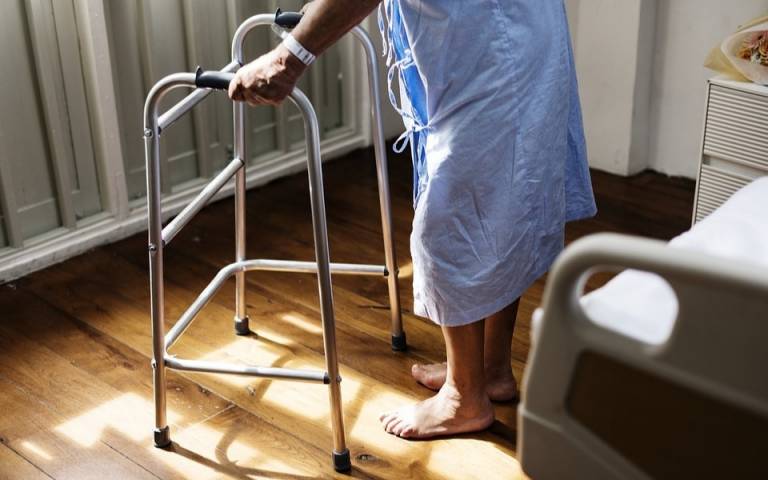UCL device spotting patients' deterioration is trialled
13 May 2019
Researchers are testing whether a new device developed at UCL that measures oxygen levels in the bladder wall can act as an early warning of deterioration in critically ill patients and those undergoing high-risk surgery.

Such patients are highly susceptible to serious complications, such as organ failure, which can be attributed to lower levels of oxygen supply. Identifying and then quickly restoring oxygen supply to these organs can considerably improve a patient’s condition and chances of recovery.
For vital organs to work they need a continuous supply of oxygen; too little or too much could be damaging. Currently, doctors can only measure oxygen supply indirectly, by measuring blood flow to the affected organs. But measuring blood flow alone doesn’t show whether this is enough.
Now researchers at UCLH and UCL hope to change this. In a "first-in-man" study known as SOAP-BOX (Surrogate Of Adequate Perfusion – Bladder OXygenation), led by Dr David Brealey and Dr Tom Parker, the Critical Care Trials Team will insert a small, flexible fibre-optic based sensor through a modified urinary catheter to continuously monitor oxygen levels in the bladder wall.
In this way, the device can indicate whether the oxygen supply is adequate or not, and can be used as a surrogate for deeper organs such as the liver, heart and brain.
Urinary catheters are routinely used in this patient population, meaning the use of the device is simple and adds little in the way of burden to the patient. The device may also remove the need for more invasive blood flow measurements.
Dr Brealey said: “We’re really excited about the potential for this device. It’s a small intervention to perform – but could make a huge difference by telling us at an earlier stage when we need to improve the blood supply delivering oxygen to the organs. We can therefore intervene more quickly, for example by applying an oxygen mask or giving more fluid. Ultimately, it could save lives by alerting us when a patient is beginning to deteriorate.”
The research team at UCLH have just begun the first stage of the trial, testing 30 patients to confirm the device is safe and suitable for use in clinical care. Researchers will then move quickly on to test the device in a larger group of patients to see whether it can identify deterioration at an early stage, and also predict patient outcomes such as the number of complications experienced.
The device was developed at the UCL Bloomsbury Institute of Intensive Care Medicine by Professor Mervyn Singer and Dr Alex Dyson (both UCL Internal Medicine) in collaboration with device manufacturer Oxford Optronix. SOAP-BOX is supported by a grant to UCL and Oxford Optronix from the Wellcome Trust and the National Institute of Health Research.
Professor Singer said: “We’re proud to have developed this device and hope that the study demonstrates that it is safe to use, can improve patient outcomes, and can reduce the need for more invasive tests.”
Links
- Professor Mervyn Singer’s academic profile
- Dr Alex Dyson’s academic profile
- UCL Medicine
- UCL Medical Sciences
- UCL Bloomsbury Institute of Intensive Care Medicine
- UCLH
- Oxford Optronix
- Wellcome Trust
- National Institute of Health Research
Source
Image
Credit: Pixabay
Media contact
Mark Greaves
Tel: +44 (0)20 3108 9485
Email: m.greaves [at] ucl.ac.uk
 Close
Close

